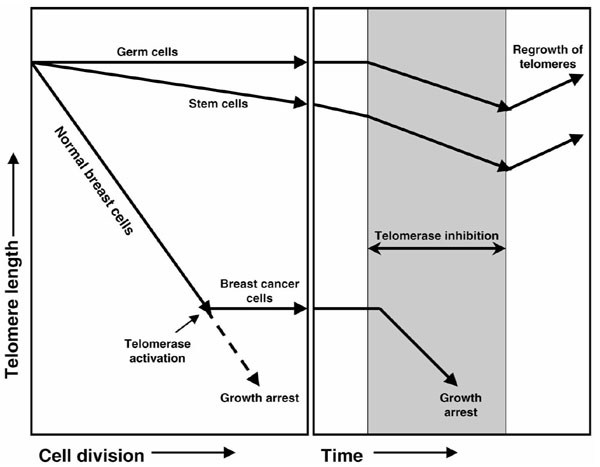Figure 1.

Effects of telomerase inhibitors in breast cancer therapy based on reviews by Krupp et al [1] and White et al [20]. Normal breast tissues do not have telomerase activity and their telomeres progressively shorten with each cell division. When telomeres become short, cells undergo growth arrest. In rare circumstances, telomerase may be activated and a cell can become immortal, leading to accumulations of mutations and cancer. Inhibition of telomerase would lead to progressive shortening of telomeres. While normal, telomerase-competent proliferating cells, such as germ and stem cells, would be affected, their telomeres are well above the critically short length to induce a DNA damage/growth arrest mechanism. Since most breast cancer cells exhibit telomere lengths close to the critically short limit, treatment with telomerase inhibitors would lead to growth arrest and cell death. With the removal of inhibitors, telomerase would be active and telomere lengths might return to their original size.
